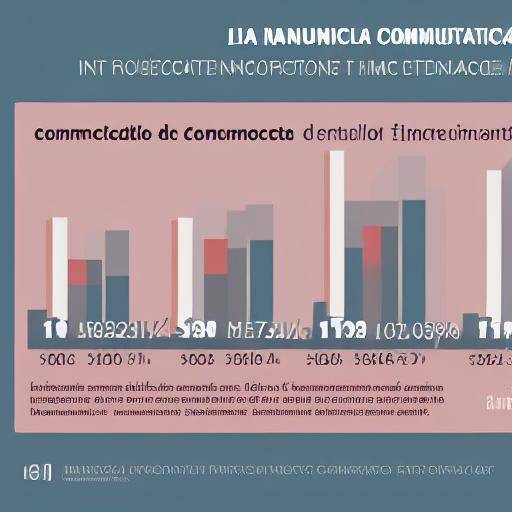
The importance of communication between an employee and his principal employer on the possibility of maintaining a second job is a subject that is often overlooked. However, this transparent and professional communication is essential to establish sound labour relations and to foster a trusting environment in the workplace. In this article, we will explore the importance of addressing this issue, understanding the relevance of transparency, relationships and professionalism in this context.
Introduction
The current labour reality has led many people to seek additional income opportunities through a second job. However, it is crucial that employees recognize the importance of communicating this decision to their main employer. In doing so, a basis for transparency and confidence is established to help strengthen labour relations and promote a professional environment.
History and Background
The evolution of the employee-employer relationship
The relationship between the employee and the employer has experienced significant developments throughout the work history. From the first forms of employment to the current working stage, different models and regulations have been established that have influenced the way in which communication between the two parties is perceived.
Labour regulations and transparency
Over time, labour regulations have been implemented to promote transparency and open communication between employees and employers. These regulations recognize the importance of establishing a working relationship based on honesty and clarity regarding additional labour activities.
Impact of globalization and technology
Globalization and technological advances have transformed labour dynamics, opening new employment opportunities and challenging traditional conventions. Labour flexibility and the diversification of income sources have become relevant aspects of modern working life.
Analysis in Deep
Benefits of transparent communication
Transparency in communication on second employment allows the primary employer to understand the circumstances of the employee and to establish agreements that benefit both parties. This helps to strengthen confidence, reduce uncertainty and avoid potential conflicts.
Common challenges and concerns
In addressing communication on second employment, it is crucial to consider the potential challenges and concerns that may arise. From time conflicts to the possibility of conflicts of interest, open and proactive communication can help mitigate these problems before they become problematic situations.
Current trends and future prospects
The current job landscape reveals a growing trend towards the diversification of income sources and the search for complementary opportunities. This development emphasizes the importance of establishing clear guidelines on communication on additional labour activities, promoting transparency and professionalism in the labour sphere.
Comprehensive review
Best practices and case studies
Best practices in communication on second employment include the presentation of clear and honest proposals, consideration of potential conflicts with primary employment and the establishment of mutually beneficial agreements. Real case studies illustrate how transparency in this communication can contribute to solid labour relations and increased confidence between both sides.
Perspectives of experts and comparative analysis
The views of experts in the field of work underscore the importance of addressing this issue in an open and professional manner. The comparative analysis of approaches and experiences offers a comprehensive view of the different contexts in which this communication is fundamental, as well as the different ways in which it can be addressed.
Legal and regulatory considerations
Legal and regulatory considerations in relation to communication on second employment are crucial aspects to take into account. Labour regulations and business policies influence how this issue is handled, and it is essential to understand its scope and implications to ensure policy and ethical compliance.
Comparative analysis
Transparency vs. concealment
The contrast between transparency in communication on a second job and concealment of this information highlights the importance of establishing employment relationships based on trust and honesty. The impact of both attitudes on the working environment and the perception of the employee by the employer is significant.
Labour relations and professional ethics
The relationship between communication on second employment, labour relations and professional ethics is intertwined in a context in which transparency and mutual respect are fundamental. The detailed analysis of how these dimensions are related and affected by labour decisions is essential to understanding the overall impact on the working environment.
Impact on the working environment
Exploring the impact of the communication on a second employment in the working environment covers aspects that go beyond the direct relationship between the employee and the employer. Considering the effect on employee morals, organizational culture and the working climate helps to understand the importance of dealing with this issue in a responsible and transparent manner.
Practical Tips and Recommendations
Step-by-step guide to address communication on second employment
Provide a detailed guide that highlights key steps and considerations by communicating with the main employer on the possibility of maintaining a second job. From the preparation of a clear proposal to the search for agreements that benefit both parties, this guide provides practical guidance to address this issue with professionalism and transparency.
Legal and ethical aspects to consider
Detail the legal and ethical aspects to be considered when maintaining a second job and communicating with the main employer. This includes aspects such as potential conflicts of interest, applicable labour regulations and the importance of complying with the company's internal policies on additional labour activities.
Strategies for solid labour relations
Providing specific strategies to maintain strong labour relations by communicating on a second job. This may include proactive management of potential conflicts, the promotion of open communication and the search for solutions that strengthen trust and understanding between both parties.
Visions and Views of Experts in the Industry
Perspectives of leading leaders and professionals
Include the perspectives of opinion leaders and professionals who stand out in the workplace, providing an enriching view on the importance of transparency, labour relations and professionalism in communication about a second job. These opinions offer a privileged look from expertise and expertise.
Future trends and projections
Explore emerging trends in communication about second employment and future projections in this area. This section offers a strategic vision of the changes envisaged in the working world, providing a relevant context to understand the importance of effectively and ethically addressing this issue.
Conclusions and FAQs
Conclusions
In short, the importance of communication with the main employer on second employment lies in transparency, sound labour relations and professionalism. These fundamental pillars support a work dynamic that fosters trust, mutual understanding and compliance with legal and ethical norms.
Frequently asked questions
- What is the importance of communicating a second job to the main employer?
Transparent communication of second employment allows for clear agreements, avoid potential conflicts and strengthen confidence in the working relationship. - What are the potential conflicts that may arise from having a second job?
Potential conflicts that may arise from having a second job include conflicts of schedule, potential conflicts of interest and insufficient commitment to primary employment. - How can I address the communication on a second job with my employer in a professional manner?
It is essential to prepare a clear and honest proposal, to consider possible implications for primary employment and to be open to agreements that benefit both parties. - What are the legal considerations that I should take into account when maintaining a second job?
It is essential to consider aspects such as potential conflicts of interest, compliance with labour regulations and respect for the company ' s internal policies regarding additional labour activities. - How can I maintain strong working relationships by communicating about a second job?
The proactive management of potential conflicts, the promotion of open communication and the search for solutions that strengthen confidence are effective strategies to maintain sound labour relations. - What are future trends and projections regarding communication about second employment?
Current trends aim at greater diversification of income sources and the search for complementary opportunities, highlighting the importance of establishing clear communication guidelines on additional labour activities.
In conclusion, the importance of communication with the main employer on second employment lies in transparency, sound labour relations and professionalism. These fundamental elements help to establish a work environment based on trust, responsibility and mutual respect. In understanding and prioritizing these aspects, employees can ensure that communication about second employment is effectively addressed, promoting a healthy and productive working relationship.










